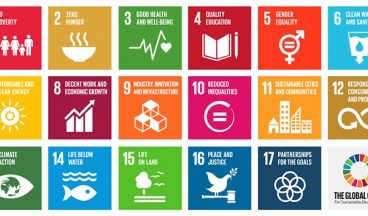Welcome to Pillow May
We’re not afraid of doing things differently to help our clients thrive. We think great accounting is taking an innovative approach, teamed with the latest technology and supported with unlimited advice.
Our personalised accounting and tax services keep things simple and efficient, so our clients can spend more time on the things that are important to them.
For the Pillow May team, it’s a privilege to give every client the tools and the confidence to take control and move their business and their life, forward.
Creating an Impact
Business for Good impacts we’ve contributed to date on behalf of our clients:
164,507

Why Pillow May
We're experts in cloud accounting
As pioneers of cloud accounting, we empower our clients with the right technology and financial systems to save valuable time and money.
We offer a personal approach
We recognise each business owner has different priorities. That’s why all our services are designed around each client’s specific needs. We help with the juggle.
We're always here to help you
Our fixed-fee packages include unlimited day to day expert advice because we know asking questions is essential for growth, whichever path you choose.
How we make life easy
-

Cloud accounting
Cloud accounting
Whether you’re already a cloud software user or a complete novice; we can help you implement the right technology to transform your business.
We have longstanding partnerships with award winning cloud software providers Xero, FreeAgent and Dext and are experts in software installation, training and support.
-
Paying your team
Paying your team
We can take the headache out of completing your payroll giving you total peace of mind that your HMRC and auto enrolment pension obligations are being met.
All you have to do is provide your team’s hours each month for us to process in your accounting software.
-

Taking your business forward
Taking your business forward
We can help you determine and reach your business and personal goals with individual business development advice.
Using budgets and cashflow statements, we’ll plan how to achieve each goal with you and set up clear financial reporting so you can make sure you’re on target.
-
Processing your receipts
Processing your receipts
We can streamline all your paper receipts and supplier emails clogging up your inbox, directly into your Xero or Freeagent software.
You can either choose a software solution or save even more admin time by letting us take care of your records for you.
-

Reducing your tax bill
Reducing your tax bill
Our Chartered Tax Advisers work hard to ensure you have the know-how to run your business and personal finances in the most tax efficient way.
All our packages include annual remuneration planning before the tax year-end, giving you advance notice of any tax bills.
-
Helping when you're stuck
Helping when you're stuck
We firmly believe there are no silly questions. We aren’t experts in your field and don’t expect you to be experts in ours.
Our small, friendly team gets to know all our clients well and make sure there’s always someone on hand to answer your queries.
How we make life easy
Whether you’re already a cloud software user or a complete novice; we can help you implement the right technology to transform your business.
We have longstanding partnerships with award winning cloud software providers Xero, FreeAgent and Dext and are experts in software installation, training and support.
We can take the headache out of completing your payroll giving you total peace of mind that your HMRC and auto enrolment pension obligations are being met.
All you have to do is provide your team’s hours each month for us to process in your accounting software.
We can help you determine and reach your business and personal goals with individual business development advice.
Using budgets and cashflow statements, we’ll plan how to achieve each goal with you and set up clear financial reporting so you can make sure you’re on target.
We can streamline all your paper receipts and supplier emails clogging up your inbox, directly into your Xero or Freeagent software.
You can either choose a software solution or save even more admin time by letting us take care of your records for you.
Our Chartered Tax Advisers work hard to ensure you have the know-how to run your business and personal finances in the most tax efficient way.
All our packages include annual remuneration planning before the tax year-end, giving you advance notice of any tax bills.
We firmly believe there are no silly questions. We aren’t experts in your field and don’t expect you to be experts in ours.
Our small, friendly team gets to know all our clients well and make sure there’s always someone on hand to answer your queries.
Latest news and articles

- 11 October 2020
The latest IR35 case law
This article highlights some of the latest IR35 cases, and uses what we’ve learned from them to draw up a list of the most influential factors.

- 26 June 2020
Accountants for Good
Pillow May is very proud to announce that we are one of the first accounting firms in the UK to commit to making our world an even better place publicly. We decided after our fantastic trip to Cambodia and in light of recent events that we wanted to work with our clients in a brand-new… Read more »

- 22 November 2018
Making Tax Digital: your questions answered
Making Tax Digital for business comes into effect in April 2019. Here’s what you need to know.
Don’t just take our word for it





